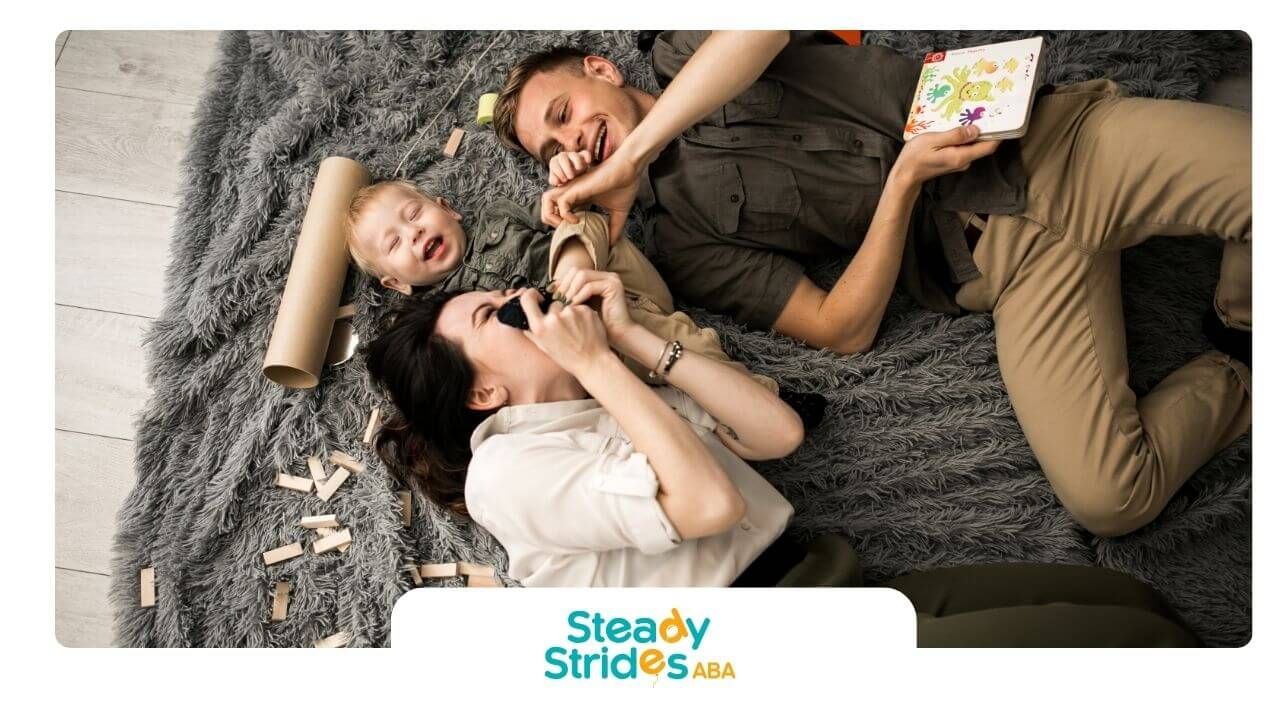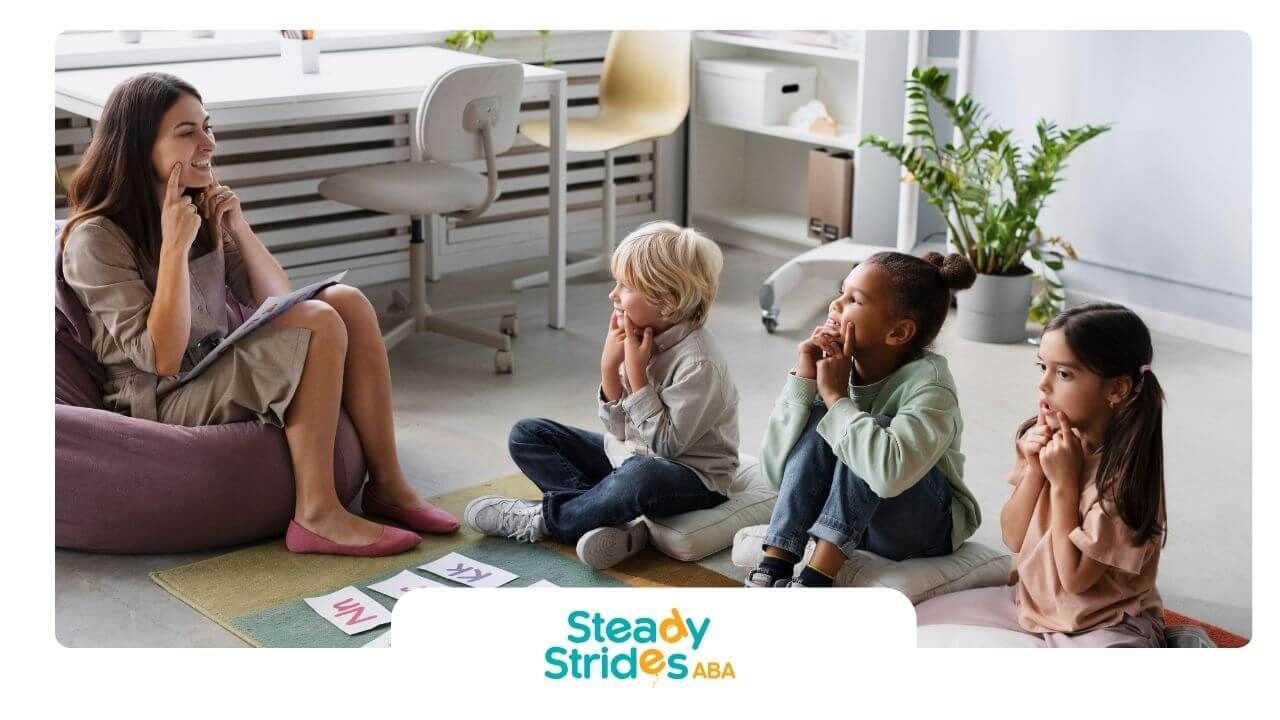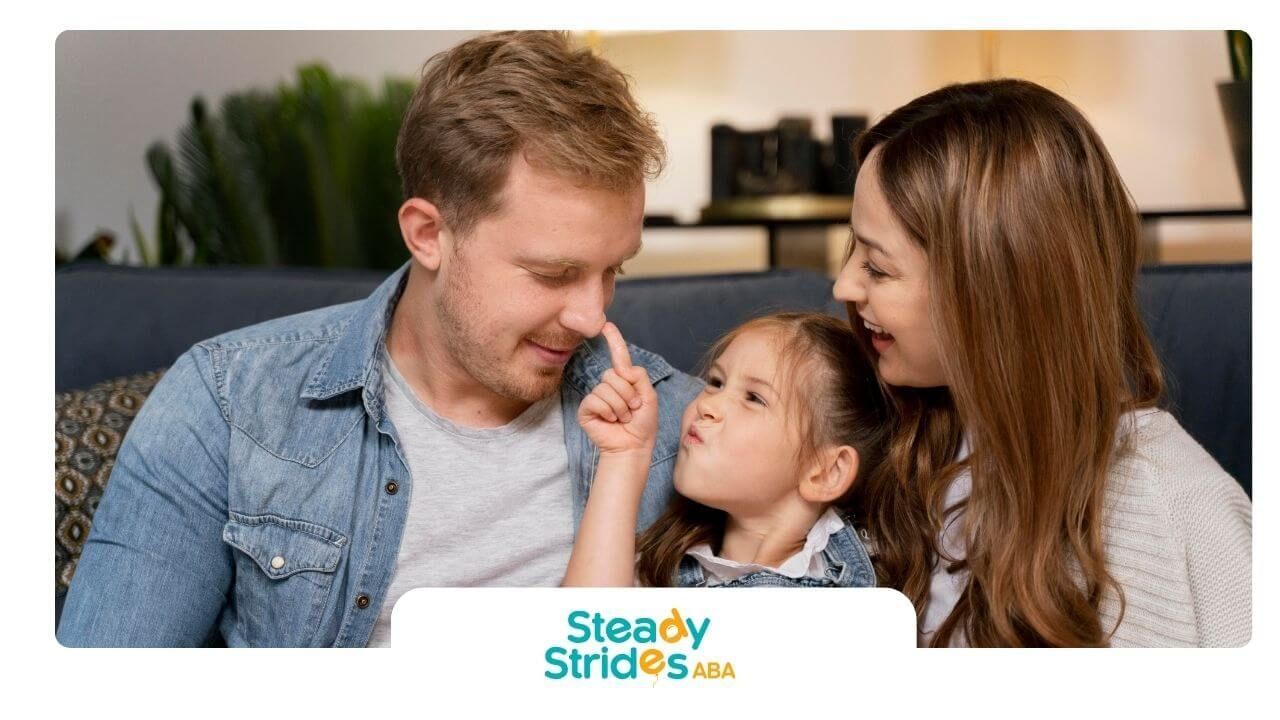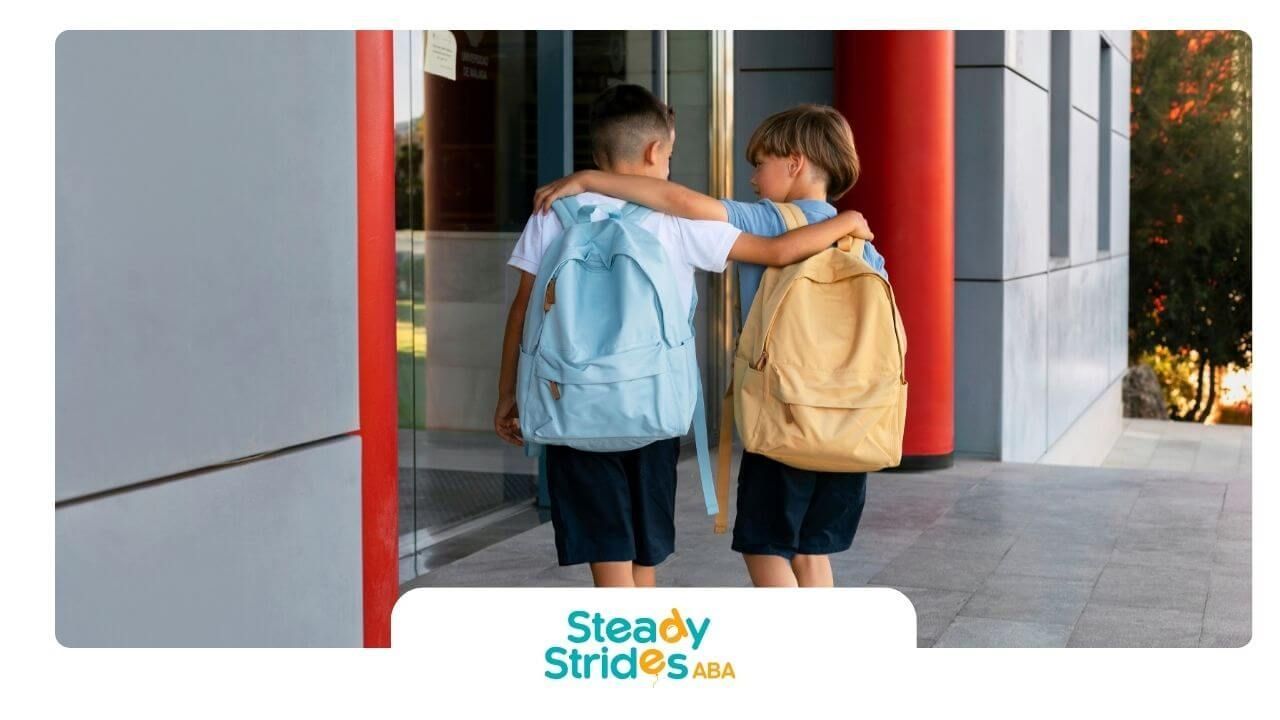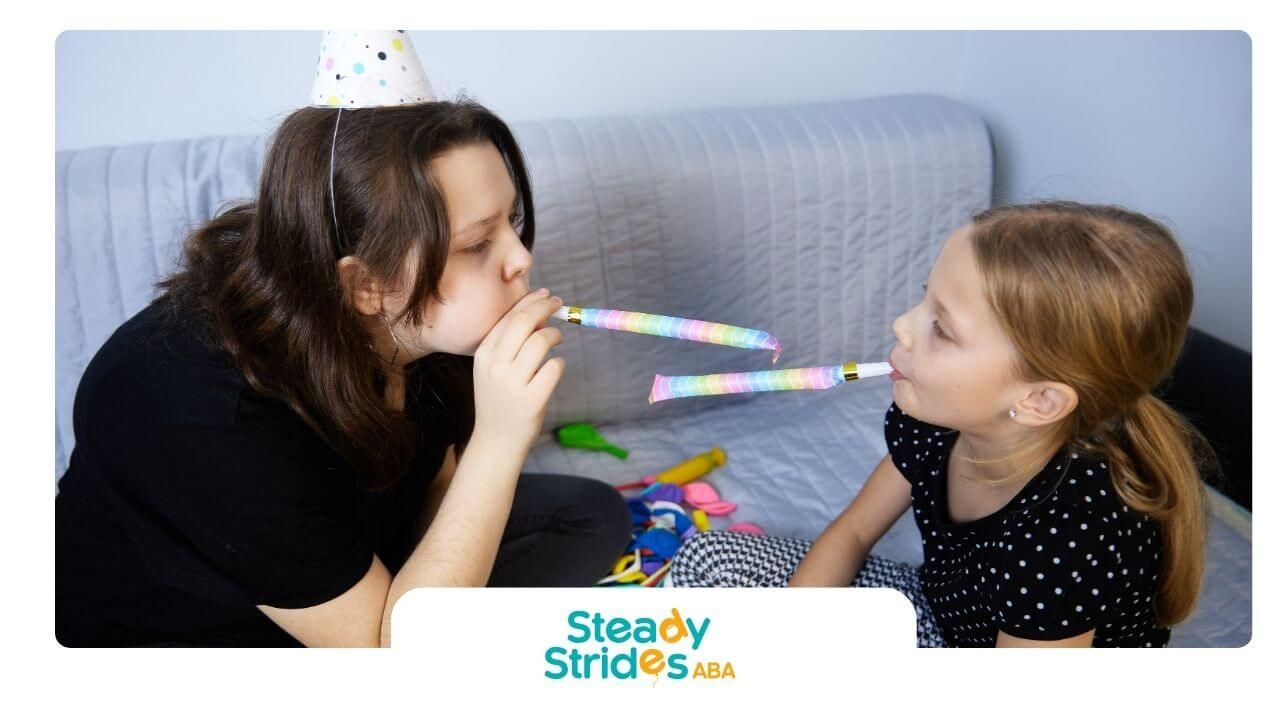A common misconception about autism is that all autistic children are nonverbal. In reality, autism exists on a spectrum, and communication abilities vary widely. While some children may have limited or no spoken language, many others develop verbal skills and communicate effectively.
Being nonverbal doesn’t mean a child cannot communicate. Nonverbal autistic children often use other methods, such as gestures, picture boards, sign language, or speech-generating devices. These tools help them express their needs, thoughts, and emotions.
Understanding that not all autistic children are nonverbal is essential for setting realistic expectations and offering the right support. Every child deserves the chance to communicate in the way that works best for them. If you’re concerned about your child’s language development, an early evaluation can help determine the next steps for growth.
At Steady Strides ABA, we recognize that communication is more than just speech. Our therapists use Applied Behavior Analysis (ABA) to encourage all forms of communication, whether verbal or nonverbal. With early support, some nonverbal children may eventually speak, while others continue using alternative communication effectively.
Frequently Asked Questions
Are all children with autism nonverbal?
No, not all autistic children are nonverbal. Many speak fluently, while others use limited or alternative forms of communication.
What does it mean to be nonverbal with autism?
It means the child has little or no spoken language and may rely on gestures, pictures, or devices to communicate.
Can nonverbal autistic children learn to speak?
Some do develop speech over time, especially with early intervention and therapies like ABA and speech therapy.
Sources:
https://www.autistica.org.uk/what-is-autism/autism-myths-and-causes
https://www.connectncareaba.com/blog/are-all-children-with-autism-nonverbal
https://www.autism.org.uk/advice-and-guidance/topics/about-autism/autism-and-communication#:~:text=People%20who%20do%20not%20use%20speech%2C%20or,not%20words)%20*%20gestures%20(pointing%2C%20eye%20gaze).




